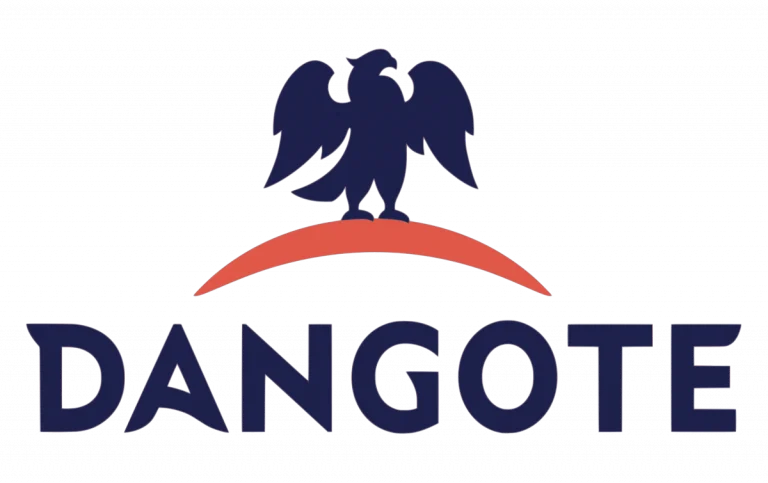Business
Stakeholders, Others Disagree Over $800m Fuel Subsidy Palliative

Stakeholders in the petroleum industry, weekend, frowned over the Federal Government’s proposed $800 million fuel subsidy palliative to be shared with Nigerians.
As part of a palliative targeted at easing the pains of Nigerians, $800 million has been proposed for distribution to 10 million households.
But in an interview with Vanguard, Executive Director of Emmanuel Egbogal Foundation, Professor Wumi Iledare, said, “Subsidy is not anti-economics but the application of the tool has become an enigma in Nigeria’s economy perhaps because of lack of transparency and accountability. However, borrowing money for transfer payments to avert social unrest or protest against PMS subsidy removal is not sustainable and it is just a postponement of the evil day.
READ ALSO: FG Gets $800m World Bank Grant For Subsidy Palliatives
“The option for the government today is a partial price deregulation phased over a period by regulation with price modulation mechanism.
“Price discrimination is also a possibility, which has theoretical underpinnings. The $800 million seems to be politically laudable. It’s not just economically feasible in the long term to minimize the social welfare losses that come with subsidy. Increasing wages is not recommended under the prevailing inflationary economy. It will be a double shock to a sluggish economy.”
Also, Managing Director, Winman Nigeria Limited, Dr. Godwin Orovwiroro, faults the government’s planned palliative, adding that “the $800 million loan is intended to cushion the impact of subsidy removal particularly the effect on the economically disadvantaged Nigerians. Subsidy removal has been on the front burner of economic and political policies and it appears to be the only issue being flaunted by politicians as our economic ailment.”
READ ALSO: Fuel Subsidy Removal Wasteful If Importation Persists – Expert
He said: “Some believe that its removal will cure our social malaise. These are narrow-minded approaches as no empirical evidence exists to show that the injection of the loan will solve anything. Let us examine the basis of fuel subsidy. The government’s position is that the cost of importation, including landing charges is more than the selling pump price. The differential being borne by the government represents the subsidy since the dispensing price is fixed and not subject to market forces.
“What they fail to tell us is that as long as the Naira keeps falling against the dollar, the subsidy malaise will never be cured. The exchange rate has become the amplifier of subsidy and the equation will always tilt to the negative until we embark on production for export to stabilize the exchange rate by the government to ease logistics of fuel distribution across the country as well as domestic freight costs.”
VANGUARD
Business
NNPCL Announces Restoration Of Escravos-Lagos Pipeline

The Nigerian National Petroleum Company Limited (NNPCL) has announced the complete restoration of the Escravos-Lagos Pipeline System (ELPS) in Warri, Delta State, following the recent explosion on the asset.
The chief corporate communications officer (CCCO) of the nation’s oil company, Andy Odeh, in a statement, said that the pipeline is fully operational, reiterating the company’s resilience and commitment to energy security.
“NNPC Limited is pleased to announce the successful restoration of the Escravos-Lagos Pipeline System (ELPS) in Warri, Delta State.
READ ALSO:Fuel Price Cut: NNPCL GCEO Ojulari Reveals Biggest Beneficiaries
“Following the unexpected explosion on December 10, 2025, we immediately activated our emergency response, deployed coordinated containment measures, and worked tirelessly with multidisciplinary teams to ensure the damaged section was repaired, pressure-tested, and safely recommissioned.
“Today, the pipeline is fully operational, reaffirming our resilience and commitment to energy security. This achievement was made possible through the unwavering support of our host communities, the guidance of regulators, the vigilance of security agencies, and the dedication of our partners and staff.
“Together, we turned a challenging moment into a success story, restoring operations in record time while upholding the highest standards of safety and environmental stewardship.
“As we move forward, NNPC Limited remains steadfast in its pledge to protect our environment, safeguard our communities, and maintain the integrity and reliability of our assets. Thank you for your trust as we continue to power progress for Nigeria and beyond,” the statement read.
Business
Dangote Unveils 10-day Credit Facility For Petrol Station Owners

The Dangote Group has announced a 10-day credit facility backed by a bank guarantee for petrol station owners and dealers, alongside free direct delivery and other incentives, as part of a new supply arrangement.
The company disclosed this in a statement posted on its official X handle on Tuesday, inviting petrol station operators across the country to register to benefit from the offer.
According to the statement, participating dealers will enjoy “a 10-day credit facility backed by a bank guarantee,” with a minimum order requirement of 5,000 litres.
“Our free direct delivery service will commence soon,” the group said, adding that the offer is open to “all petrol station owners and dealers.”
READ ALSO:Dangote Sugar Announces South New CEO
The Dangote Group further called on operators to register their stations to access the supply arrangement.
“Register your petrol stations today to benefit from our competitive gantry price,” the statement read.
The company also disclosed that petrol supplied under the arrangement will be sold at a gantry price of ₦699 per litre.
For enquiries, the group provided the following contact numbers: 0802-347-0470, 0809-324-7070, 0809-324-7071 and 0203.
READ ALSO:Dangote Refinery Dispute: PENGASSAN Suspends Strike After FG Intervention
The announcement follows a recent petrol price adjustment by the Dangote Petroleum Refinery.
The PUNCH earlier reported that the refinery reduced its ex-depot petrol price from ₦828 to ₦699 per litre, representing a ₦129 cut or a 15.58 per cent reduction.
An official of the refinery, who spoke to PUNCH Online on condition of anonymity, confirmed the adjustment, saying, “The refinery has reduced petrol gantry price to ₦699 per litre.”
The new price reportedly took effect on December 11, 2025, marking the 20th petrol price adjustment announced by the refinery this year.
Business
JUST IN: Otedola Sells Shares In Geregu Power For N1trn

Billionaire businessman, Femi Otedola, has sold his majority stake in Geregu Power Plc for N1.088 trillion in a deal financed by a consortium of banks led by Zenith Bank Plc.
The Nigerian Exchange, NGX, made this announcement on Monday.
Otedola’s Amperion Power Distribution Company Ltd reportedly held nearly 80 percent of the power generating company.
READ ALSO:N200b Agric Credit Dispute: Appeal Court Slams NAIC, Upholds First Bank Victory
With this new development, Otedola, Chairman of First Holdco Ltd, parent company of First Bank of Nigeria Plc, will reportedly now concentrate on expanding his interest in the Nigerian banking sector, although he still retains some shares in Geregu.
Otedola is said to currently own 17.01 percent of First Bank — its single largest shareholder since the bank was established in 1894.

 News4 days ago
News4 days agoBREAKING: Anthony Joshua Involved In Road Accident

 Politics4 days ago
Politics4 days agoYou’re Not 001 – Wike Rubbishes Claims Of Fubara Being APC Leader In Rivers

 Politics4 days ago
Politics4 days agoWike Speaks On Defecting To APC

 Politics4 days ago
Politics4 days agoJUST IN: INEC Excludes PDP From Ekiti Governorship Election

 News4 days ago
News4 days agoDoris Ogala: How Pastor Chris Knelt Before Church, Begged For Forgiveness [Video]

 Politics4 days ago
Politics4 days agoGo To Hell, You Didn’t Pay My School Fees – Wike Hits Seyi Makinde

 News4 days ago
News4 days agoNAF Neutralizes Bandits At Turba Hill, Kachalla Dogo Sule Camps

 News4 days ago
News4 days agoNigerian Army Finally Reveals Details Of US Military-led Airstrikes In Sokoto

 Metro3 days ago
Metro3 days agoJUST IN: Court Orders Remand Of Ex-AGF Malami, Son, Wife In Kuje Prison

 Business4 days ago
Business4 days agoFuel Price Cut: NNPCL GCEO Ojulari Reveals Biggest Beneficiaries






























